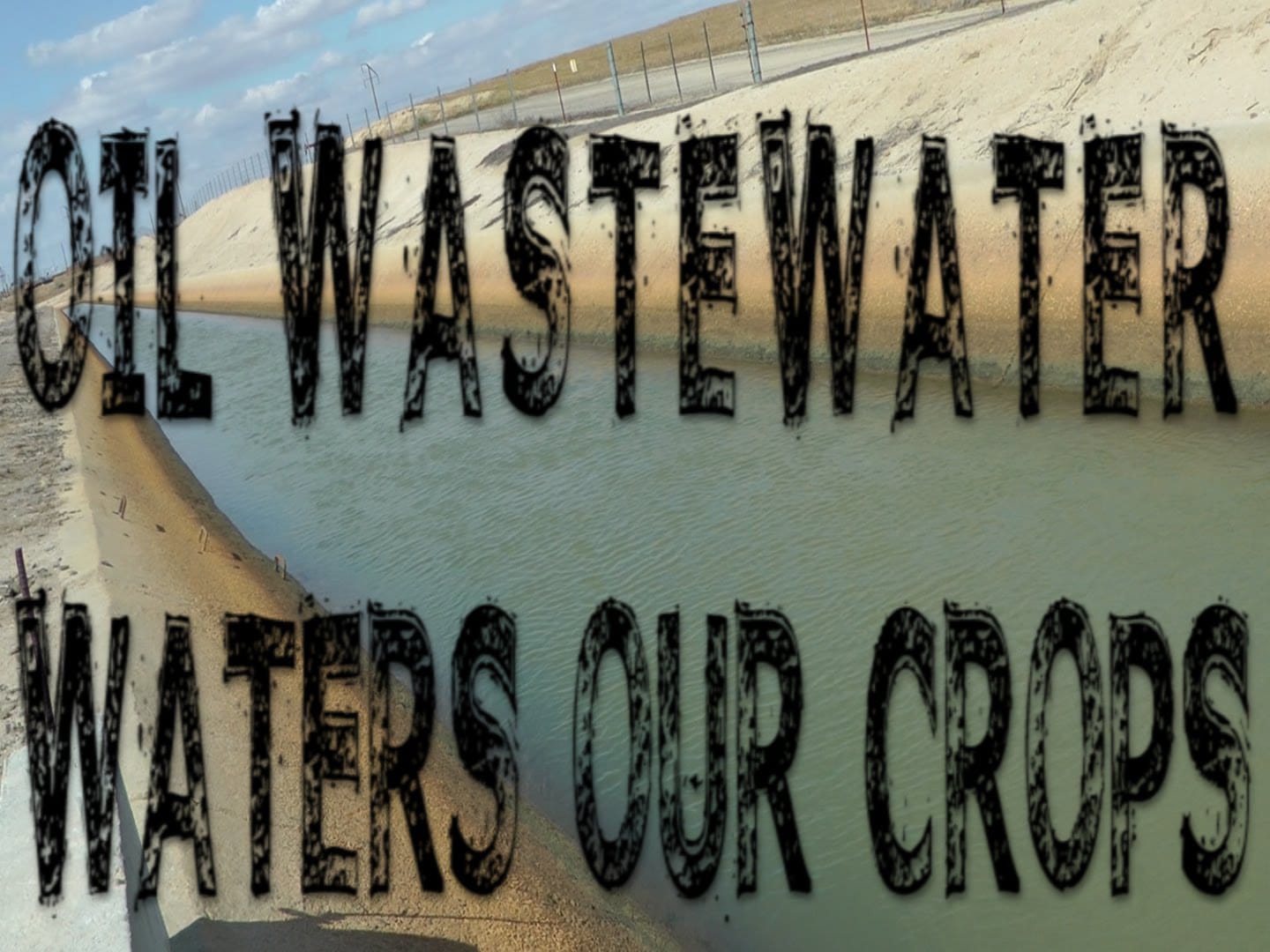There are times when science is obvious. This is one of those times.
A new report by researchers at PSE Healthy Energy, UC Berkeley, Lawrence Berkeley National Laboratory, and the University of the Pacific sheds light on a very troubling practice in the field of Big Ag — the use of oil industry wastewater for irrigating food crops.
Would you water your garden with the wastewater from an oil field? No. So why does California allow this practice in industrial agriculture?
“This disturbing scientific report identifies dozens of hazardous chemicals used in oilfields supplying waste fluid to water California food crops and recharge drinking water aquifers. People in the Central Valley could be drinking these oil industry chemicals right now, and current water-testing procedures wouldn’t detect these dangerous substances. Given these shocking findings, California regulators should immediately halt the use of oil-waste fluid in any procedure that could contaminate the water we drink or the food we eat,” said John Fleming, a staff scientist with the Center for Biological Diversity.
More from a press release from the Center:
This report – written by researchers at PSE Healthy Energy, UC Berkeley, Lawrence Berkeley National Laboratory, and the University of the Pacific – shares preliminary findings on the chemical additives used in oil fields that provide produced water that is reused for agricultural irrigation of food crops, livestock watering and recharging aquifers. Oil field produced water has been used to irrigate food crops in the Cawelo Water District since the mid-1990s.
Before you think you can just stop eating “California” food to avoid this, think again. That is where they grow the stuff you most likely eat, including:
99 percent of artichokes, 99 percent of walnuts, 97 percent of kiwis, 97 percent of plums, 95 percent of celery, 95 percent of garlic, 89 percent of cauliflower, 71 percent of spinach, and 69 percent of carrots.
This new report helps shed light on the use of oil and gas wastewater in agriculture and helps to highlight what is a growing problem. In the Gulf of Mexico, fracking wastewater is just dumped in the water untreated. In many places they inject it back into the ground, potentially causing earthquakes. In the Northeast they use it to “salt” the icy roads in winter.
But in California they use it on the crops, that you eat.
“This report shines an important light on a troubling reality — the state of California is allowing the oil industry to experiment on consumers of our food products and the agricultural workers that grow them,” said Madeline Stano, a staff attorney with the Center on Race, Poverty & the Environment.
While it becomes increasingly clear that the only workable climate solution is to keep fossil fuels in the ground, in the short term, as the people at the Standing Rock camp say, “Water is life.” Not “oil field produced water is life.”
But back to California.
Mmm. Anyone want some artichoke dip?
Image credit: Screengrab from YouTube/Hope Forpeace
Subscribe to our newsletter
Stay up to date with DeSmog news and alerts








